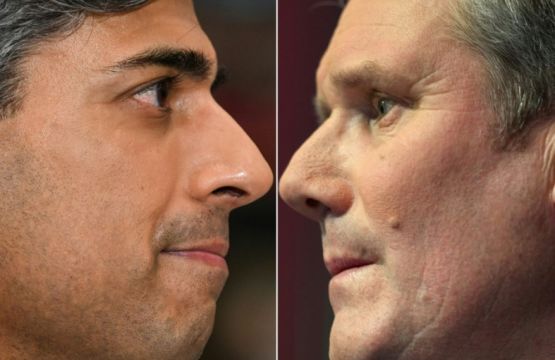An unpopular election. The electorate is unmoved by a lack of real choices of who to vote for. Neither Kier Starmer nor Rishi Sunak are proving to be a clear winner.
The run up to the General Election has been one of disinterest and despair. All the polls repeat how Labour are unshakeable from their significant lead – to the point of having a super majority that would leave the UK effectively in a one party state for years to come. So we already know the outcome of the General Election. Rishi Sunak has thrown the kitchen sink at the debates – Kier Starmer lies, tax increases et al – but nothing will stick and the polls – the electorate – are unmoved. This may well be as Jim Callaghan alluded to about Thatcher – the nation wants a change and that’s that. All Starmer has to do is nothing – keep quiet, no risky policies, just tell the electorate what they want – change. And it is working.
But the rush to the centre by both the main candidates has left the electorate somewhat unimpressed – with an audience member at the last TV hustings by the BBC describing Sunak as mediocre. Starmer is uninspiring to listen to – wooden in his public speaking. Sunak is full of energy but has the charm of a snake oil salesman. So, this is what democracy has served us up with. The electorate know that Labour will do nothing – the Tories have left the bank account in debt. So what’s to lose with changing the government. Apart from nothing to gain.
My thought on voting turned to the prospective candidates in my constituency. The first past the post system means that we have no direct vote on the party in power. I can vote for a Tory MP because I judge him to be best for my community – and he may well win. But if I want to vote for who will run the government, I already know a Tory vote will be a wasted vote. This is the dilemma of Firs Past The Post.
Proportional Representation would give a voice to minor parties that gain votes but no reward – this opens itself to the elephant in the room – parties being tactical in their choice of constituencies. PR would break the two party dominance and their failure to build political movements. The Tories’ failure to hold on to its loyal base is partly the reason for its frailty.
The willingness of Starmer to make the Labour Party an establishment party has taken it so far away from its raison d’etre that it has become a managerial technocratic party – the attempts of the Tories to label the party as dangerously socialist has failed to convince. The Tories have accused Labour of lacking a plan whilst criticising its policies – its desperate stuff. The problem with Labour is that there is nothing for the Labour heartlands. They are voting for Labour not because of Labour but because they do not want to vote Tory due to their failed promises.
There is much talk of Reform shaking up British politics – with Farage talking of them replacing the Tories as the second party. I don’t see much evidence of Farage lighting up the election run up – he was simply lost in the TV debate, and his candidates – like UKIP – have echoes of the BNP about them that are causing repeated embarrassment.
So it is difficult to see in this election where a genuinely popular party would come from. Liberal Democrats will use tactical voting to carve out the South West for themselves but their policies remain distinctively niche. Until there is a change from First Past the Post it is hard to see how a populist movement can grow and changes the stale political situation we have to live with.



